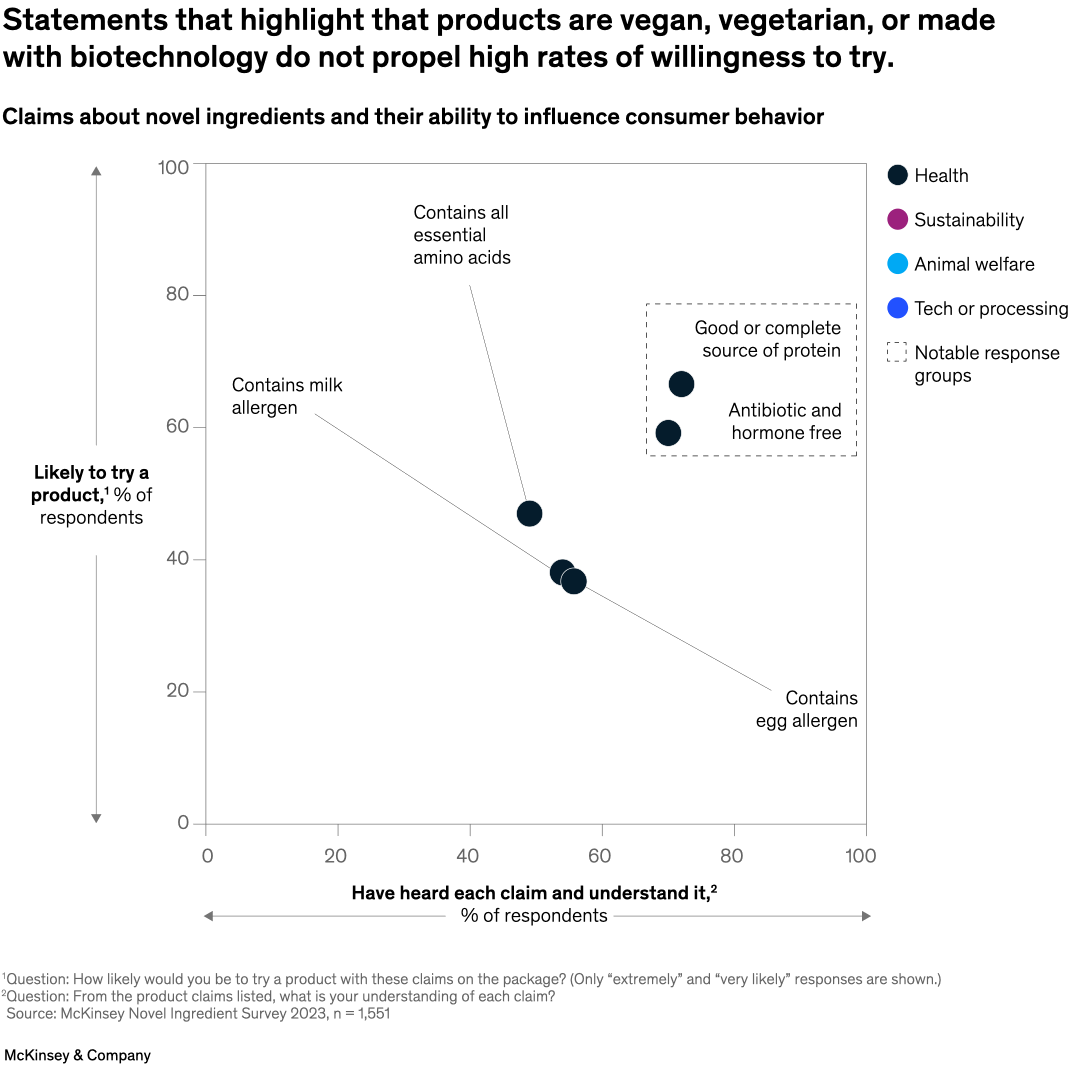Labels that use recognizable language and easily understood claims about health impacts are the most compelling for enticing people to try a food product with novel ingredients. Senior partner Roberto Uchoa and colleagues find that vegetarian and vegan terminology, despite being widely recognized, don’t sway consumers’ decisions as much, while production details aren’t well understood or influential. Understanding consumer perceptions can help companies guide the emerging market for novel ingredients and proteins—and could contribute to forging a more sustainable and robust food system.

Image description:
A scatterplot shows different claims about novel ingredients in food products and the claims’ ability to affect consumer behavior. The claims are broken into four distinct types: health, sustainability, animal welfare, and tech or processing. The x-axis shows the share of respondents who have heard each claim and understand it, and the y-axis shows the share of respondents who are likely to try a product based on the same claims. Overall, claims about health are well understood and likely to be tried. Claims about sustainability are generally understood but don’t heavily influence consumers’ willingness to try. Claims about animal welfare are well understood but again don’t influence consumers’ likelihood to try. Claims about tech or processing are poorly understood and unlikely to be tried.
Source: McKinsey Novel Ingredient Survey 2023 (n = 1,551).
End of image description.
To read the article, see “Novel proteins: Consumer appetite for sustainably made ingredients,” March 21, 2024.